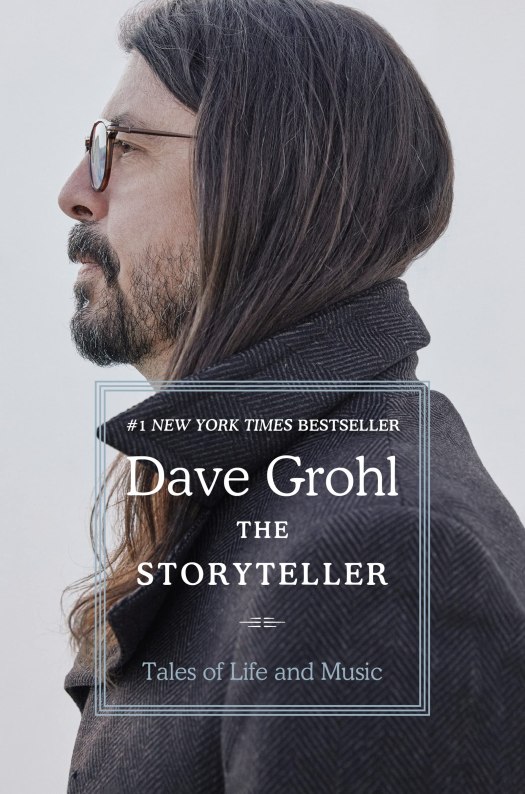
Edit: I wrote this on the morning of March 25th. Later that day, we find out news that Foo Fighters drummer, Taylor Hawkins, died while on tour with the band in Colombia.
An excerpt from the book on the fast friendship between Taylor and Dave:
“Taylor and I had become practically inseparable since he had joined the band the year before, becoming devious partners in crime from day one. During his stint as Alanis Morissette’s drummer, long before he became a Foo Fighter, we would bump into each other backstage at festivals all over the world, and our chemistry was so obvious that even Alanis herself once asked him, “What are you going to do when Dave asks you to be his drummer?” Part Beavis and Butthead, part Dumb and Dumber, we were a hyperactive blur of Parliament Lights and air drumming wherever we went…”
One way to know I’m getting old is that I’m reading (and enjoying!) all sorts of biographies. Some of the more recent ones I’ve read are about Bad Religion and Kurt Cobain. There’s something especially fascinating about sitting down and learning about the people who shaped the soundtrack to my adolescent life.
Anyway, The Storyteller by Dave Grohl has been on my to-read list for a bit now. He’s always seemed like such a character and though I don’t consider them one of my favorites, I’ve definitely enjoyed listening to the Foo Fighters over the years.
His story seems so improbable. (Interestingly, I said the same thing after reading Heavier than Heaven: “Also, after reading this, I think it’s incredible and seemingly improbable that Nirvana actually happened.”)
How did this guy go from a scrawny, goofy high school dropout who was just bashing on the drums for Scream (and then onto Nirvana) to fronting a mega rock band, collaborating with some of the biggest names in music, appearing / performing at countless awards shows, the White House and appearing on Saturday Night Live more than any other musician?
Luck, being in the right place at the right time, and raw tenacity. Plus, being open to whatever the universe throws at him and always up for going along for the ride.
He reflects on his life as he’s gotten older:
“Sometimes I forget that I’ve aged. My head and my heart seem to play this cruel trick on me, deceiving me with the false illusion of youth by greeting the world every day through the idealistic, mischievous eyes of a rebellious child finding happiness and appreciation in the most basic, simple things.”
Aye, I hear that!
He writes about how much music affected and shaped his life and it’s so true. How he spent countless hours practicing guitar and drums by playing along to his favorite bands. I can relate — I remember looping songs over and over again so I could try to nail certain guitar riffs and trying to imagine the slightest bit of what it would be like to be a rock star.
The book is a quick read and I found myself wanting more details about every aspect of his life. But I found myself laughing out loud at a number of parts, and nodding my head in agreement in others (the passages he writes on being a dad and how much his daughters mean to him got me good).
Anyway, if you appreciate Dave Grohl, the Foo Fighters, or rock music in general, you’ll probably dig this.










